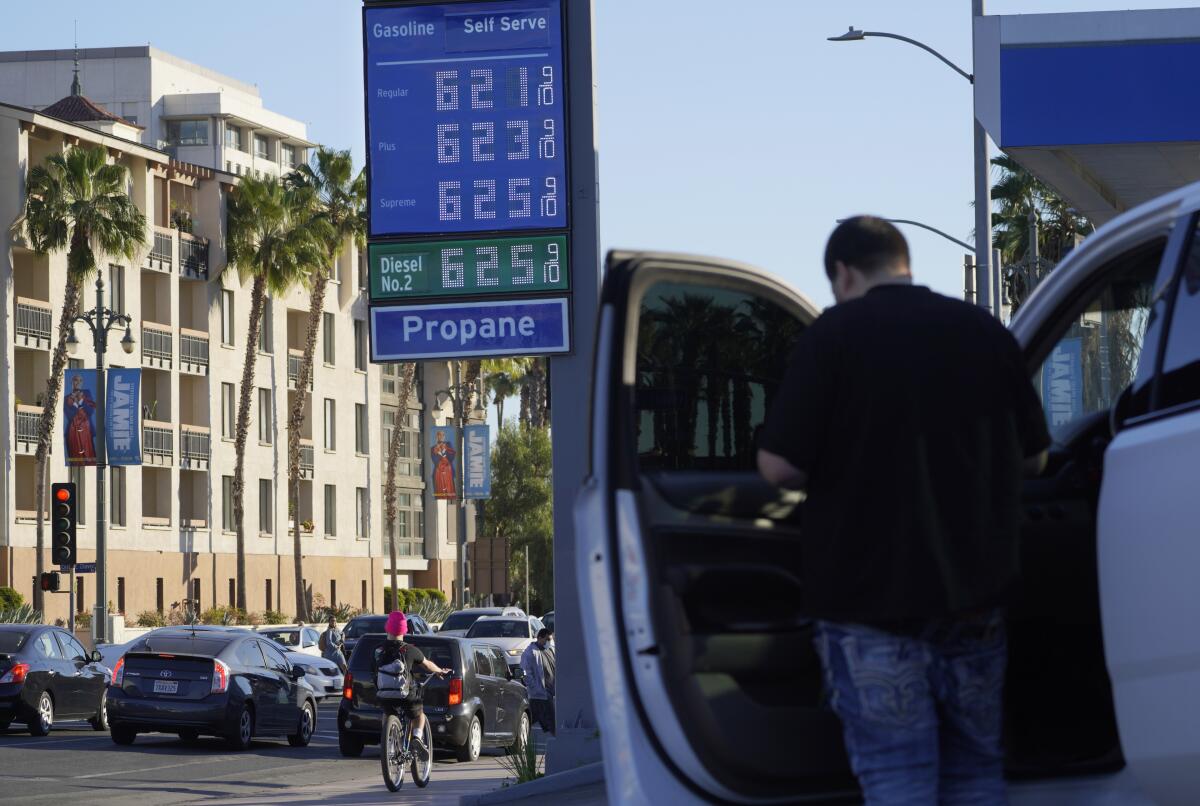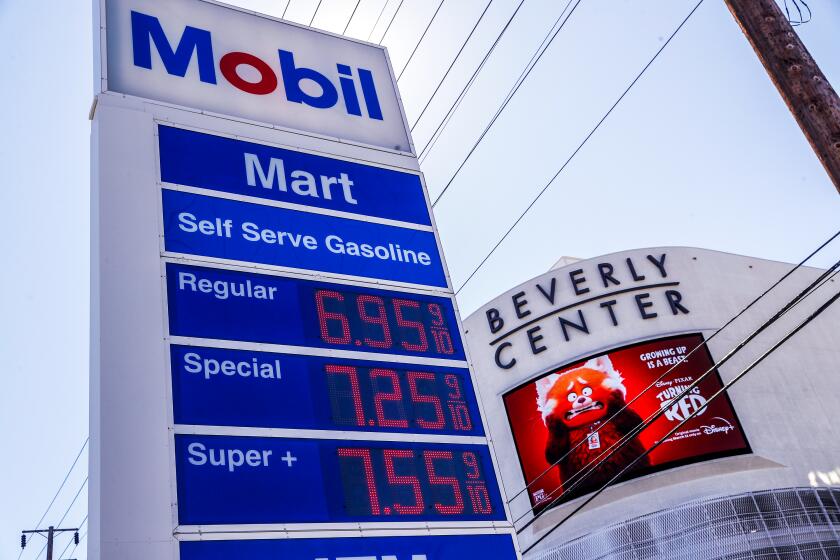U.S. gasoline market shows signs of cooling off

It’s been a tail wind for oil prices for most of this year, but the previously booming U.S. gasoline market is showing a few signs of cooling off.
Retail prices have now fallen for 21 consecutive days, the longest losing streak since April 2020. The relief at the pump is welcome news for many who rely on cars for work and leisure, and for President Biden as he tries to lower fuel costs. Gasoline futures in New York dropped more than 30 cents a gallon in intraday trading, to the lowest in more than two months, while money managers are holding the fewest bullish bets relative to bearish ones since November.
They are twin forces that, for now at least, support the notion that the biggest U.S. fuel market has at least stopped overheating. Excluding when demand collapsed in 2020 because of COVID-19, consumption of the road fuel last week was the lowest for the time of year since 2014, according to U.S. Energy Information Administration data.
High gasoline prices have given refineries an incentive to buy crude, thereby supporting oil prices. The spread between gasoline and West Texas Intermediate crude remains at an extraordinary level of about $45 a barrel — but even that has ebbed slightly from a peak near $61 last month.
Stockpiles of gas have expanded by more than 4 million barrels over the last two weeks. They normally decrease at this time of year.
You’ve seen the signs advertising $6.95, $6.99 or even $7.05 for a gallon of regular unleaded. But who’s buying it, and why?
The tentative signs of a cool-down follow a period in which the national average pump price for gas briefly topped a record $5 a gallon. Even after the latest slide, it remained at $4.80 a gallon — an incredibly high level at any other time in history, American Automobile Assn. data released Tuesday show.
Over the long weekend, Biden tweeted that companies running gas stations should lower prices. That drew criticism from Amazon.com Inc. founder Jeff Bezos.
It’s unclear how much longer the relief will last.
Gasoline is still far higher than a year earlier and a record number of drivers were expected to hit the roads for the Fourth of July weekend, AAA said last week.
Bloomberg writer Jake Lloyd-Smith contributed to this report.
More to Read
Inside the business of entertainment
The Wide Shot brings you news, analysis and insights on everything from streaming wars to production — and what it all means for the future.
You may occasionally receive promotional content from the Los Angeles Times.











